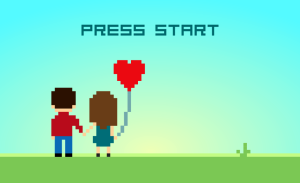Ralph Waldo Emerson said: ‘Always do what you are afraid to do.’ And this rule seems a reasonably good guide for self-improvement. Because it turns out that people are often afraid to do the things they are least familiar with. Whether is approaching a girl in a club, giving a speech to 50 people, or setting up a business: things make us feel anxious because we have little experience doing it. In such cases the anxiety often pushes you away from doing the thing, hence still leaving you clueless about what you will experience, or even further increasing your anxiety.
But there is something odd here: because the things that you are least familiar with provide you with the biggest opportunities to learn. After all: if you are not familiar with something, it means that you have little knowledge of it. It means that you are still at the start of the learning curve; that the ‘marginal utility per unit of experience’ is very high. Therefore, being afraid of something might be a damn good indicator that there is a lot of potential for you to learn about the thing. Hence it might be wise to always do what you are afraid to do.
This reasoning seems cogent, doesn’t it? But there is one problem with Emerson’s rule…it is not always true. There are cases in which fear should actually push you away from doing something – not pull you into doing something. Think about the fear of jumping of a building, or the fear of approaching a tiger. Given that you want to improve yourself, it seems unwise to jump of a building, or to be ripped to pieces by an angry tiger.
So the best we can do is to say that the rule is a heuristic: a guide in life, that points you – in most cases – to the areas in life where you can learn a lot. But how do you know in what cases you should act upon the rule, and in what cases you should realize that doing so might actually put you in danger? I think we have to distinguish between two kinds of fear here: socially conditioned fears and innate fears. The first are things such as being afraid to start a business or to make a move on a girl*: we have been told, or we have experienced at first hand, that such endeavours might cause emotional pain – even though they are not inherently dangerous. Innate fears, on the other hand, are things such as being afraid of tigers, which seems like a reasonable fear. Tigers are dangerous; despite your experiences with one. In other words: it seems that innate fears try to protect us from real threats, while socially conditioned fears don’t always do so.
Taking this into account, ‘Always do what you are afraid of’ is likely to make you learn a lot.
But what do you think?
*it might be true that socially conditioned fears are grounded in biology, hence being innate. If we take evolutionary psychology seriously, for example, it might be true that the fear to approach women is in fact innate. Hence there seems to be a continuum from innate to socially conditioned fears; not a categorical difference.

